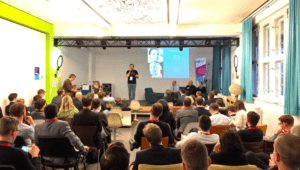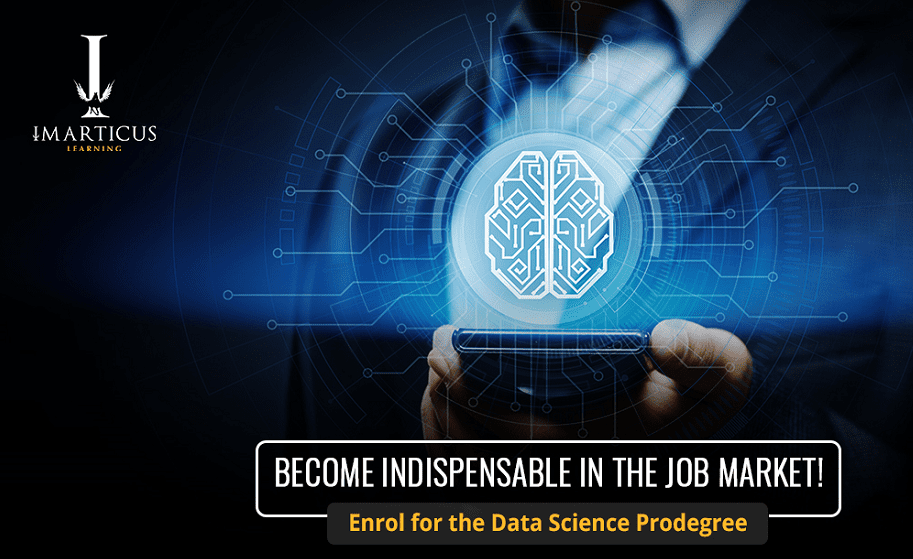Data is wealth in modern days and data scientists will be in huge demand in the coming years. Firms require skilled professionals to analyze the generated data. Data analysis is also predicted to surge with the rise of new-age technologies like machine learning, artificial intelligence, etc.
According to reports, there is a shortage of expert data scientists in the market. One can opt for a post-graduate program in machine learning to gain the skills needed in the data science industry.
Let us see about ten data science careers that are shaping the future.
Data Scientist
Data Scientists have to organize the raw data and then analyze it to create better business strategies. Data is analyzed for predicting trends, forecasting, etc.
 Data scientists are technical personals who are fluent in data analysis software and use them to predict market patterns. Firms will require more skilled data scientists in the future due to the need to process & analyze big data.
Data scientists are technical personals who are fluent in data analysis software and use them to predict market patterns. Firms will require more skilled data scientists in the future due to the need to process & analyze big data.
Business Intelligence Analyst
Business Intelligence (BI) analysts & developers are required to create better business models. They also help in making better business decisions. Policy formation and strategy development are key responsibilities of a BI analyst. Firms have to face market disruptions and need good business models/strategies to tackle them. BI analyst/developer will be in demand in the coming days.
Machine learning Engineer
Machine Learning (ML) Engineers are required for creating better data analysis algorithms. They have research about new data approaches that can be used in adaptive systems. ML engineers often use other technologies like deep learning, artificial intelligence, etc. to create automation in data analysis.
Applications Architect
Firms require good applications and user interfaces to run business processes smoothly. Applications architects choose or create the right application for their firms. Due to the rise in the complexity of data, firms will require better applications to manage it.
Statistics Analyst
A Statistics analyst or statistician is required to interpret the data and present it in an understandable way to non-technicians. They have to highlight the key insights in big data to stakeholders/fellow employees. Data analysis results are also used to make predictions and identify potential opportunities. You need to be good with numerology if you are thinking to become a statistician.
Data Analyst
They have to convert large data sets into a suitable format for data analysis. They also help in finding the data outliers which can affect the business. There is a lot of data generated every day as humans analyze less than 0.5 percent of data produced! Data analysts are already in huge demand in the data science industry.
Infrastructure Architect
Infrastructure architect in a firm makes sure that the applications, software(s), databases used by the firm are efficient. Infrastructure architects also help in cost optimization. They make sure that their firm has the necessary tools for analyzing big data.
Data Architect
Data architects mainly focus on maintaining databases.
 They attempt to make the database framework better. With the rise of automation in data science, data architects are in huge demand to provide better solutions.
They attempt to make the database framework better. With the rise of automation in data science, data architects are in huge demand to provide better solutions.
Enterprise Architect
Enterprise architects are IT experts and provide firms with better IT architecture models. They suggest stakeholders & senior managers in choosing the right IT applications for data analysis. Top companies like Microsoft, Cisco, etc. hire enterprise architects for maintaining their IT framework.
Data Engineer
Data engineers are required to create a good data ecosystem for their firms where the data pipelines are maintained. Data Engineers are required to choose better data analysis applications to provide real-time processing. They also help in making the data available to data scientists.
Conclusion
Data science is a growing field and there are a lot of job opportunities. You can learn Data Science Courses in India from a reliable source like Imarticus learning. One can also target any particular job role in the data science industry and should learn the necessary skills. Start your post-graduate program in machine learning now!


 The demands for various data science services have been seeing a large surge all over the world as researchers for the market predict its magnification in the near future. Due to this increased demand, the path for various other talents and job aspirants is clearing. This would allow them to try their hand and work hard while in this genre of work. The vast number of technologies in relation to data are creating large opportunities for up and coming data professionals to seize.
The demands for various data science services have been seeing a large surge all over the world as researchers for the market predict its magnification in the near future. Due to this increased demand, the path for various other talents and job aspirants is clearing. This would allow them to try their hand and work hard while in this genre of work. The vast number of technologies in relation to data are creating large opportunities for up and coming data professionals to seize.
 This is an interesting and highly practical way to gain real-life
This is an interesting and highly practical way to gain real-life  These events are excellent venues for networking with like-minded professionals who work for a range of different organizations. A simple Google search with keywords like Data Science meetups, along with the name of your city, will generate information about ongoing or upcoming events near you.
These events are excellent venues for networking with like-minded professionals who work for a range of different organizations. A simple Google search with keywords like Data Science meetups, along with the name of your city, will generate information about ongoing or upcoming events near you.
 One of the most basic and key responsibilities of data scientists in an organization is to identify existing challenges and problems that a business is facing and finding solutions to remedy the situation. This might seem like a generic responsibility of every important professional but the main difference here is that data scientists use tons of relevant data to find the problem.
One of the most basic and key responsibilities of data scientists in an organization is to identify existing challenges and problems that a business is facing and finding solutions to remedy the situation. This might seem like a generic responsibility of every important professional but the main difference here is that data scientists use tons of relevant data to find the problem. The 21st Century businesses are complex than ever, there are various factors that determine the fate of an organization. With the number of complexities that exist, it’s very difficult to figure out what impacts your business and how it does that.
The 21st Century businesses are complex than ever, there are various factors that determine the fate of an organization. With the number of complexities that exist, it’s very difficult to figure out what impacts your business and how it does that. Data science is one of the most in-demand skills in the industry and given the wide range of applications that it has, the demand for a
Data science is one of the most in-demand skills in the industry and given the wide range of applications that it has, the demand for a 
 Considering the current situation, the economy has more or less become a vicious circle. Because of no money in the market, there are no sales.
Considering the current situation, the economy has more or less become a vicious circle. Because of no money in the market, there are no sales. Apparently in times where people are being laid off, expecting to get hired somewhere sounds like an arduous task. This has been the worst hit on the economy so far.
Apparently in times where people are being laid off, expecting to get hired somewhere sounds like an arduous task. This has been the worst hit on the economy so far.



 Over the past few months, colleges and academic institutions have seen a significant rise in enrollment in
Over the past few months, colleges and academic institutions have seen a significant rise in enrollment in 


 Tableau Server Certification
Tableau Server Certification
